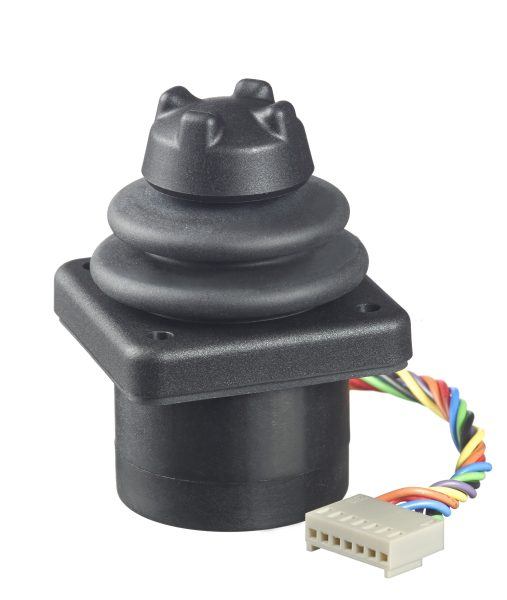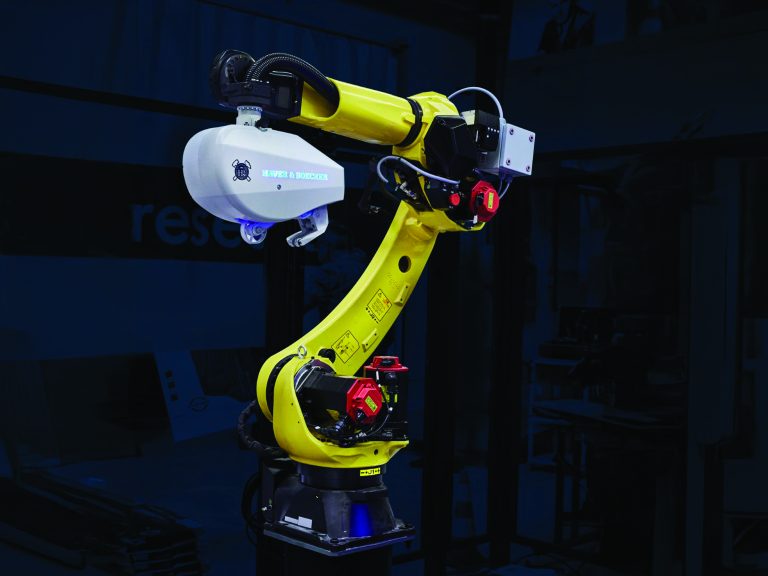The expanded availability of APEM’s XS Series low-profile joystick/thumbstick provides designers with more industrial-grade precision control options
APEM announces expanded availability of the XS Series low-profile joystick/thumbstick, ideal for robust applications requiring precise control of industrial equipment, construction vehicles, and marine vessels.
Many of the most challenging industrial, commercial, and marine applications incorporate extensive operator control interfaces, via wired or wireless consoles, armrests, belly boxes, and pendants. Users need responsive multi-axis devices supporting precise control, designed to survive the harsh environment. Because these installations have limited space, APEM has developed the XS Series with these manufacturers, OEMs, and end users in mind.
XS Series joysticks are three-axis—X, Y, plus Z center tap—with a minimized yet very usable height. The compact size of just 47mm overall height above the panel face is one of the lowest available, making the joystick less vulnerable to impact, and allowing it to be located on dense control arrays without restricting access to other devices. The minimal height means that guarding provisions can also be lower on control panels, providing suitable drop protection while avoiding interference with user actions.
Nylon covering a stainless-steel shaft provides a durable and easily gripped surface, and the entire assembly is rated IP66 at operating temperatures from -22 to 185DegF. The two-convolution gaiter is designed so that self-alignment is guaranteed, and no sealing washer is needed.
XS joysticks can be installed as a drop-in or rear-mounted for best design flexibility, and they are tested to survive a 1m free fall, along with vibration resistance in accordance with IEC 60068. The joystick is designed to meet industrial-grade EMC and ESD ratings in accordance with IEC 61000. The expected lifetime of 10 million cycles in such a trim form factor is made possible with an updated metal gimbal/base pivot mechanism and limiter for the Hall effect sensor, and improved wire routing. A comprehensive validation plan ensures adherence to all performance requirements.
With a standard operating voltage of 3.3 or 5VDC, the Hall effect sensor can operate as a single- or dual-axis, with dual and dual-inverse outputs available. Outputs can be analog or PWM, each including center-detect and center-tap signaling.
A straightforward part number configurator lets users easily select among five signaling options, five gain levels, four-movement limiter types, two handle shapes, and four spring force levels. Other customization options, including color, are available.











